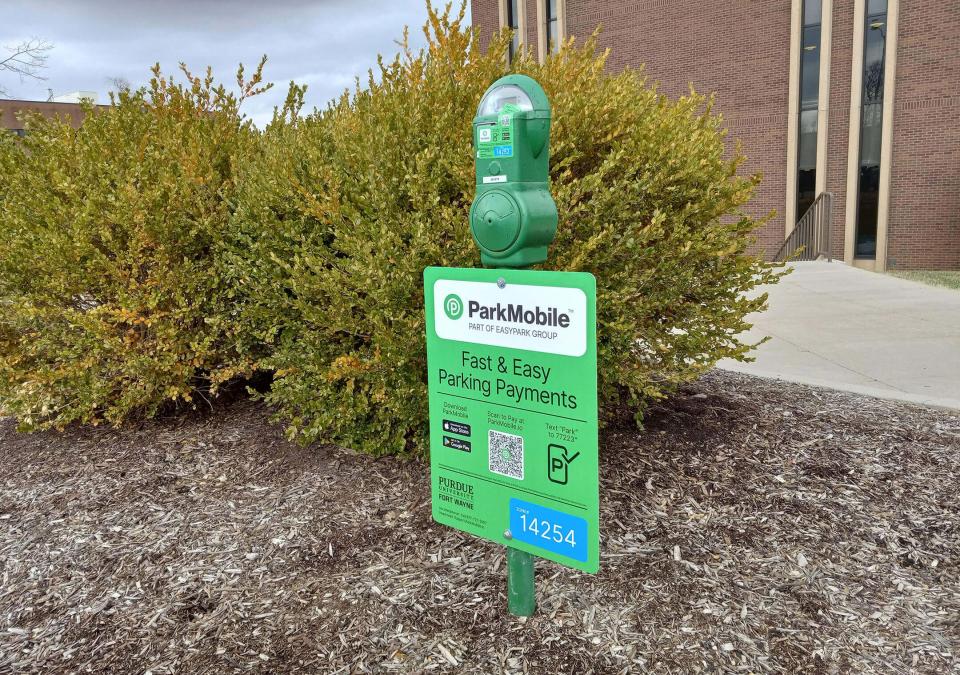
PFW Story
Switch to ParkMobile great for drivers who don’t like change
Purdue University Fort Wayne has upgraded 80 parking meters on its Main Campus. As part of a transition that will officially conclude next week, the meters will no longer be coin-operated.
The university has partnered with ParkMobile to deactivate the slots and add a posted QR code users will scan with a mobile phone to pay for parking. Clicking on the QR code leads to the ParkMobile app, if already downloaded, or the company’s website.
To pay for parking, a user enters the zone number posted on signs around the spot, selects the amount of time needed, and touches the “Start Parking” button to begin the session. Users can also extend the time of the session via their mobile device.
Rates remain $1.50 per hour for the metered spaces, but free parking in B lot spaces located across campus is also still available. The A lot spaces will continue to be free after 5 p.m. and on weekends.
The City of Fort Wayne uses a similar system throughout the downtown area, according to Anthony Harrison, PFW’s chief of police.
Along with enforcement of violations, the university’s police department had been collecting coins from the meters every two weeks, but as time went by, fewer banks were willing to collect and count the coins, and more transaction fees were also being added. With fewer people carrying pocket change, the transition to ParkMobile made sense, Harrison said.
Along with updated information on the meters, there are approximately 50 posters displayed around the parking areas explaining the options. As the changes officially take effect, there will also be a limited grace period to give drivers a chance to adjust.
Harrison said as the campus hosts more community events such as the Cherry Blossom Festival, Korea Festival Fort Wayne, Johnny Appleseed Festival parking, and the upcoming return of the Muddy River Run in August, his officers’ efforts need to be focused more on serving the public while still maintaining the income stream.
“We want to make sure we can provide the services, and parking is just part of that,” Harrison said.
Harrison said he will continue to meet regularly with ParkMobile representatives to assess the system and address any issues.
To learn more about ParkMobile, which launched in 2008, visit the how it works page or watch various instructional videos provided online.
ParkMobile options are located in major cities, large arenas, and on various university campuses such as Louisville, Long Beach State, South Florida, Texas-El Paso, Massachusetts, Illinois, and Vanderbilt.




